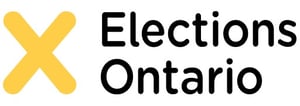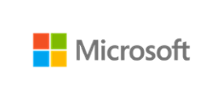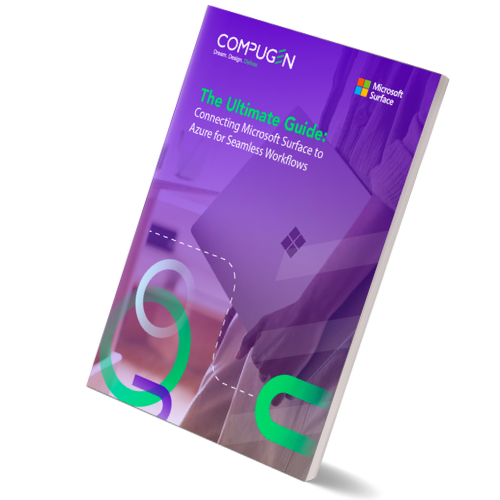Read the original article on Microsoft.
For more than 100 years, Elections Ontario, a nonpartisan agency of the Legislative Assembly of Ontario, has administered the election process and the tabulation of election results in Canada’s most populous province. Ontario’s sheer size and scale translates to nearly 11 million eligible electors across 6,885 polling locations voting to elect 124 representatives during each election. While elections have fundamentally remained consistent over the last century, technological advancements have brought computers and other devices into the electoral arena.

The journey to modernize Ontario’s election process began in 2008 after the appointment of Greg Essensa, Chief Electoral Officer at Elections Ontario, who mandated building modern services to improve the voter experience at polls. After more than a decade of advocating for legislative change and conducting extensive research and testing, this vision has finally been realized. In 2018, Elections Ontario began modernizing the 100-year-old paper balloting process by introducing a technology-enabled election model in the 42nd General Election. This marked the most significant change to Ontario’s electoral process in more a century.
A unanimous vote for Azure
Following the 2018 general election, Elections Ontario identified an opportunity to move to a modern cloud-based solution that would provide it with flexibility, speed, and nimbleness when needed most, while continuing to meet security policies and standards set by the Government of Ontario. To help realize new efficiencies, Elections Ontario turned to Microsoft Azure to modernize its data estates and applications and support a new cloud-enabled election footprint. Elections Ontario completed a full datacenter migration to Azure in less than a year ahead of the 2022 general election, making it one of the first cloud-based provincial elections in Canadian history.
Attracted to the benefits of the cloud, Elections Ontario sought a solution that was not only performant but compliant, reliable, and highly secure. Security is a critical requirement given that the agency possesses the personal information of millions of eligible electors, along with 55,000 employees and support staff, many of whom are brought on solely for election day. Elections Ontario holds the infrastructure and partners it deals with to the highest levels of integrity and trust. Any technology Elections Ontario implements must exemplify these qualities of security and trust to help ensure election integrity.
Elections Ontario’s on-premises systems and platforms were already based on Microsoft products and services. When an early-stage proof of concept demonstrated that Azure could satisfy the agency’s needs for agility, flexibility, reliability, and security, migrating to the Azure platform became a logical progression. Elections Ontario’s mission is to uphold the integrity and accessibility of the electoral process and help ensure that elections are done fairly and efficiently. With Azure, Elections Ontario can continually optimize its cloud deployment with reliability, integrity, and scalability top of mind.
Empowering elections experts with expert IT support
To streamline the rollout and ongoing growth of its Azure environment, Elections Ontario completed a competitive process and procured the services of Compugen, one of Canada’s largest private IT solutions and service providers, to support the full life cycle of the managed and modernized environment. This included migrating approximately 100 election applications and supporting datasets to Azure and deploying security services such as Microsoft Defender for Cloud and Azure DDoS Protection. Says Harry Zarek, President and Chief Executive Officer at Compugen, “We’re unwilling to compromise on security, because it’s the first question asked: Can you prove this is secure and that no one interfered with it?”
Partnering with Compugen, Elections Ontario was able to scale up Azure security services quickly, and given the high-profile nature of elections, its IT team also worked with the Microsoft Detection and Response Team (DART) to proactively address potential security anomalies. With cybersecurity resiliency built in from the bottom up, the infrastructure supporting elections in Ontario continues to drive strong confidence in the process and its outcomes.
Rounding out the ballot with add-on services and optimizations
As part of the initial on-premises migration to Azure, Compugen helped Elections Ontario verify that its applications—particularly its electoral management system of record—would run efficiently in the cloud. The agency deployed Azure SQL Managed Instance and Azure App Service on top of its Windows Server environment, which allowed it to migrate applications and databases with minimal code changes. It was able to preserve other platform as a service (PaaS) workloads, including patching and automated backup functionality, thereby reducing management, costs, and most importantly, time to market. The PaaS feasibility also simplifies the agency’s process of ramping up capacity during electoral peaks and ramping down during non-election periods.
Today, almost 50 percent of Elections Ontario’s database servers have been refactored to PaaS on Azure, which Compugen and the agency’s IT team jointly manage. For workloads where PaaS isn’t feasible, Elections Ontario deploys on-demand infrastructure as a service virtual machines (VMs). These provide the agency with multiple VM size options suitable for various workloads, vertical scaling capabilities, and faster turnaround times for server builds and deployment. Working together with the Azure and Compugen teams, Elections Ontario can now scale up the needed CPU utilization within hours.
On election day, it’s critical that Elections Ontario’s operations are seamless and responsive. The agency’s secondary, geographically separated, and well-tested Azure region, Canada East, allows redundancy and replication of all its applications and data to help ensure that user information, security, networking, and database updates continue uninterrupted throughout the electoral process. Rapid scaling of existing machines with almost no capacity limits in Azure gives Elections Ontario the flexibility to address issues that might occur during elections and other periods.
The agency managed to build this expansive environment while growing its user base. It accelerated onboarding for new employees with unique IDs issued through Azure Active Directory, part of Microsoft Entra, and thanks to its existing use of Microsoft 365, it can simply add those people to staffing cohorts and train them in time for election day. Elections Ontario can also now turn off application testing environments during low periods such as evenings or weekends to save costs while consuming the same overall level of services, if not more. Elections Ontario’s use of automation in Azure to shut down unneeded workloads is resulting in about a 7 percent savings in monthly costs and 30 percent cost reduction.
Azure: A clear win for the electoral process
Elections Ontario is ultimately judged on its ability to ensure that every eligible voter in Ontario can exercise their democratic right to cast a vote. The agency is committed to making voting easy, maintaining the integrity of elections, and strengthening public trust in the elections process by continuously improving organizational effectiveness. Elections Ontario believes it must respond to changing needs and encourage innovation in the election process, and other jurisdictions across Canada and around the world have examined the agency’s technology and infrastructure to use as a model for moving their own organizations toward a future in the cloud. With continuous optimization always on its radar, Elections Ontario plans to continue using the flexibility and security of Azure ahead of the next election, tentatively scheduled for 2026, to move its innovation strategy forward.
Partners Involved








.png)